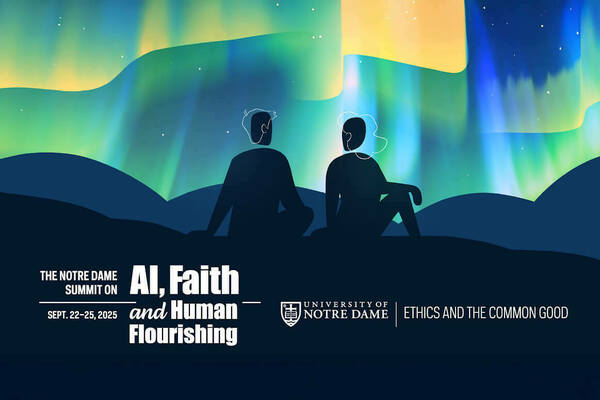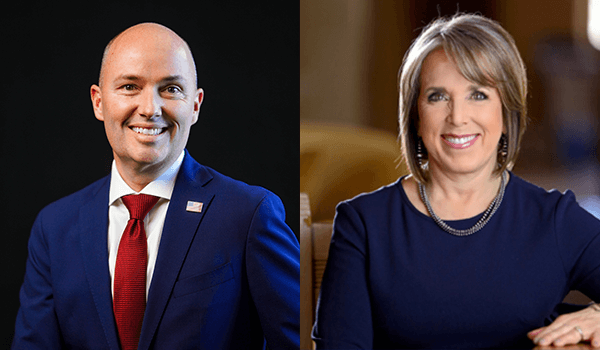Black men — including transit workers — are targets for aggression on public transportation, study shows
Black men on buses and trains — whether as passengers or transit workers — face hostile encounters that threaten their sense of safety and well-being, according to a new study by a Keough School of Global Affairs sociologist. By reinforcing racist tropes that they are dangerous or invisible, these encounters can also erode Black men’s sense of dignity and self-worth.
“Black men who want to go to work, school, appointments, visit others, or do any of the other things that people use public transport for, find the experience to be degrading rather than liberating,” said Gwendolyn Purifoye, assistant professor of racial justice and conflict transformation in the Keough School at the University of Notre Dame. “Any hostile encounter in a public space is stressful, but it’s magnified when you are trapped in a space until a vehicle stops.”

Purifoye’s study, co-authored with Derrick Brooms of Morehouse College, was published in the journal Sociology of Race and Ethnicity.
The researchers conducted ethnographic observations on Chicago-area buses and trains between 2010 and 2022, choosing routes that, according to census data, traversed racially and economically diverse areas of the city and suburbs, including downtown Chicago. They traveled at varied times of day and amid diverse weather conditions.
The researchers observed repeated avoidance of Black male passengers by non-Black passengers, which included behaviors such as ignoring a request for directions, moving away or averting eye contact. They also noted surveillance behaviors by authority figures such as police in train stations.
“Being treated as undesirable or as a cause for fear is harmful to Black men, especially because these incidents often play out in front of other people,” said Purifoye, who is a core faculty member of the Keough School’s Kroc Institute for International Peace Studies. “Black men are simultaneously hyper-visible and invisible — visible as potential problems yet invisible as citizens with rights, as human beings with feelings or as persons deserving civility in public spaces.”
The researchers also found that Black male transit personnel faced repeated hostile behaviors such as challenges to their authority and criticism for doing their jobs, especially during large-scale special events such as parades, concerts and sporting events.
“Black men’s status as transit personnel or security does not shield them from racial animus,” Purifoye said. “These types of stressors in everyday life not only have implications for their health and well-being but also can impact their dispositions, relationships and sense of self, which in turn impacts their families and communities.”
Purifoye has shared the study’s findings with Chicago’s Regional Transportation Authority. She is a member of its steering committee that works to implement transit service that is safer, more frequent, reliable and affordable for riders. Based on study results, Purifoye recommends that Chicago’s transit boards adopt policies that add or increase security for transit personnel, regardless of their routes, and provide more funding for security. Purifoye also advises adopting clear policies that protect all passengers and personnel from any form of harassment, she said, while ensuring that policies do not include measures — such as hyper-surveillance or police dogs — that have historically been used against Black populations.
Purifoye said the study revealed a need for further research on how negative interactions on public transportation inform conditions that leave Black men at risk in public. The research was funded by the Midwest Sociological Society and is part of a larger ongoing project that examines social interactions on public transportation across race, class and gender groups.
Originally published by at keough.nd.edu on Nov. 14.
Contact: Tracy DeStazio, associate director of media relations, 574-631-9958 or tdestazi@nd.edu
Latest ND NewsWire
- Faculty receive prestigious early career awards from National Science FoundationDuring the 2024-25 academic year, four researchers in the University of Notre Dame’s Colleges of Engineering and Science received early-career awards from the National Science Foundation.
- Notre Dame School of Architecture poised for global leadership through historic investmentThe $150 million gift represents an unprecedented commitment in the 160-year history of American architectural education. In recognition of this landmark gift, the school will be renamed the Matthew and Joyce Walsh School of Architecture at Notre Dame.
- Banks that identify fraudsters increase loyalty, retain more defrauded customers than others who never were compromisedIn a new research study, Vamsi Kanuri, the Viola D. Hank Associate Professor of Marketing at the University of Notre Dame’s Mendoza College of Business, found that banks that identify fraudsters earn customer loyalty and lose customers if they can’t say who was responsible for a fraudulent transaction.
- Notre Dame to host summit on AI, faith and human flourishing, introducing new DELTA frameworkThe Institute for Ethics and the Common Good and the Notre Dame Ethics Initiative will host the Notre Dame Summit on AI, Faith and Human Flourishing on the University’s campus from Monday, Sept. 22 through Thursday, Sept. 25. This event will draw together a dynamic, ecumenical group of educators, faith leaders, technologists, journalists, policymakers and young people who believe in the enduring relevance of Christian ethical thought in a world of powerful AI.
- Notre Dame Democracy Initiative hosts bipartisan conversation with Western state governorsTwo Western state governors known to work across the aisle on policy issues such as water, housing and energy will visit the University of Notre Dame for a fireside chat about how Western state pragmatism can serve as a model for the country to overcome polarization.
- In new research, Roy Scranton explores climate change and the limits of human progressIn his most recent book, “Impasse: Climate Change and the Limits of Progress,” Scranton, an associate professor of English, defines the impasse he sees as “not only political and institutional, but cognitive, existential and narrative” and asserts that the only path forward is through embracing what he terms ethical pessimism. “A lot of people confuse pessimism with nihilism, apathy and despair,” Scranton said. “But pessimism is actually about recognizing our limits, letting go of unrealistic goals, finding solidarity in the fact of human suffering and doing what you can now, not in some utopian future.













